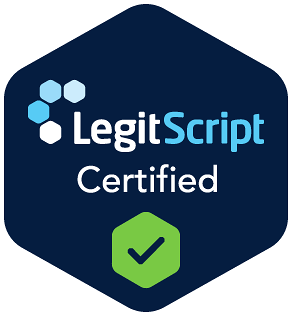At the core of CBT lies the Cognitive Triangle, a model that illustrates the interconnected relationship between thoughts, feelings, and actions. It’s the heart and main concept of CBT, helping individuals recognize how their thought patterns influence their emotions and behaviors. By understanding and reshaping these connections, people can break negative cycles and develop healthier coping mechanisms.
One of the key strengths of CBT is its adaptability — it has been proven effective in treating a wide range of mental health conditions, including anxiety, depression, PTSD, and addiction. For those struggling with substance abuse, CBT helps by teaching individuals how to recognize triggers, challenge distorted thinking, and develop healthier behavioral responses.
What Does CBT Treat?
- Anxiety disorders (generalized anxiety, social anxiety, panic disorder)
- Depression (major depressive disorder, persistent depressive disorder)
- Post-Traumatic Stress Disorder (PTSD)
- Obsessive-Compulsive Disorder (OCD)
- Eating disorders (anorexia, bulimia, binge eating)
- Addiction (substance abuse, gambling, behavioral addictions)
- Bipolar disorder, as a supplementary treatment
- Schizophrenia, when combined with medication
Because CBT is skills-based, it empowers individuals with practical tools they can use in everyday life. This can make it a highly effective treatment option, especially for people who are unfamiliar or a little nervous to try individual therapy.
Parts of the Cognitive Triangle
Thoughts are the internal narratives and beliefs that shape how we perceive ourselves and the world. In CBT, identifying automatic negative thoughts (ANTs) is crucial. ANTs are rapid, often unconscious, assumptions.
For example, someone struggling with addiction might think, “I’ll never be able to quit, so why try?” This thought can lead to feelings of hopelessness and continued substance use. CBT helps individuals challenge these distortions by examining evidence for and against them. Over time, replacing negative thoughts with balanced, realistic ones can reduce emotional distress and encourage healthier behaviors.
Feelings are the emotional responses triggered by thoughts and experiences. They can be intense and overwhelming, especially for those dealing with addiction or mental health disorders.
A person who feels intense shame after a relapse may believe they are a failure, reinforcing a destructive cycle. CBT helps to teach emotional regulation skills. It helps individuals recognize that feelings, while valid, are not always facts. By separating emotions from actions, people can respond more constructively rather than reacting impulsively.
Actions (or behaviors) are outward responses influenced by thoughts and feelings. In addition, maladaptive behaviors (such as substance use) often stem from negative thought-emotion cycles.
CBT helps individuals interrupt automatic behaviors by introducing healthier alternatives. For instance, instead of turning to alcohol when stressed, a person might practice deep breathing or call a supportive friend. Over time, these new behaviors weaken old habits and reinforce positive change.
Beneath the Cognitive Triangle lie core beliefs. Core beliefs are deeply held assumptions about oneself, others, and the world. These beliefs fuel thoughts, emotions, and actions. CBT works to uncover and challenge these beliefs, replacing them with more adaptive ones to create lasting change.

Advantages of Using CBT in Addiction Treatment
CBT is one of the most researched and validated therapies for addiction treatment. It helps individuals identify high-risk situations and develop coping strategies to avoid relapse.
Unlike some approaches that focus solely on abstinence, CBT addresses the psychological roots of addiction (such as trauma or negative self-beliefs). CBT often leads to long-term recovery success, especially when combined with other treatments like support groups or medication.
While some therapies explore past traumas extensively, CBT is more focused on current challenges and solutions. This makes it particularly useful for individuals who want practical, immediate strategies.
For example, someone with social anxiety might work on gradual exposure to feared situations rather than delving deeply into childhood experiences. This present-focused approach helps people see tangible progress quickly, increasing motivation and engagement in therapy.
CBT goes beyond traditional talk therapy, and emphasizes skill-building on a fundamental level. Clients learn techniques such as:
- Cognitive restructuring: This skill helps individuals identify and reframe negative or irrational thoughts that worsen emotional distress. By examining evidence for and against automatic thoughts, people learn to challenge cognitive distortions.
- Behavioral activation: This technique encourages engaging in rewarding activities to counteract depression or addiction-related apathy. Scheduling daily walks or creative hobbies can replace unhealthy habits with positive ones.
- Mindfulness and relaxation strategies: These practices teach present-moment awareness to reduce rumination and emotional reactivity. Deep breathing exercises can help manage panic attacks or cravings in real time.
- Assertiveness training: This skill focuses on communicating needs clearly without aggression or passivity. It reduces resentment by prioritizing self-respect over people-pleasing.
- Guided discovery: Therapists use Socratic questioning to help clients reevaluate unhelpful beliefs independently. This method promotes self-reflection rather than direct advice.
- Journaling: Writing down thoughts and triggers helps identify patterns in emotions and behaviors. Journaling provides a private space to practice cognitive restructuring
- SMART goal building: This framework ensures goals are Specific, Measurable, Achievable, Relevant, and Time-bound. Instead of “I’ll get healthier,” a SMART goal would be “I’ll walk 15 minutes daily for two weeks.”
These skills not only help individuals confront current challenges in their life, but also remain useful long after therapy ends. This gives individuals tools to manage future challenges independently.
While CBT is highly effective on its own, it also complements medication-based treatments. For severe conditions like schizophrenia or bipolar disorder, combining CBT with antipsychotics or mood stabilizers can improve outcomes.
CBT can help individuals with schizophrenia distinguish between reality and delusions, reducing distress. For those with bipolar disorder, it aids in recognizing early mood shifts and implementing coping strategies before symptoms escalate. It can be a welcome addition to medication for individuals hesitant to start taking strong medication for their illness.
Receive Mental Health Support at Amity San Diego
Our outpatient program provides structured therapy while allowing individuals to maintain work, school, or family commitments. Sessions typically include individual therapy, group therapy, and skill-building workshops.This flexible option is ideal for those with mild to moderate symptoms who need ongoing support without 24/7 supervision. It helps clients practice recovery skills in real-world settings while attending therapy several times per week.
Our Intensive Outpatient Program (IOP) offers a higher level of care than standard outpatient, with more frequent sessions for deeper therapeutic work. It includes group therapy, individual counseling, and relapse prevention planning.
We designed our IOP treatment for those who need substantial support but don’t require inpatient care. It is effective for stabilizing addiction, mood disorders, or crisis situations. Clients benefit from intensive therapy while still living at home.
Amity San Diego’s Partial Hospitalization Program (PHP) serves as a middle ground between inpatient and outpatient care, providing full-day treatment with medical and therapeutic support. It includes psychiatry, group therapy, and structured activities. This program is best for individuals transitioning from hospitalization or those with severe symptoms needing daily monitoring. PHP offers rigorous treatment while allowing patients to return home in the evenings.
Dual diagnosis programs specialize in treating co-occurring mental health disorders (such as depression and PTSD) alongside addiction. Integrated care addresses both conditions simultaneously to foster better long-term recovery. Therapies like CBT, medication management, and trauma-informed care are tailored to clients with complex needs. Our approach reduces relapse risks by treating underlying mental health issues fueling substance use.
Each program is designed to meet different levels of need, ensuring individuals receive the right intensity of care for their recovery journey. Reach out today to take the first step toward healing.



